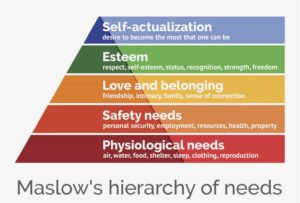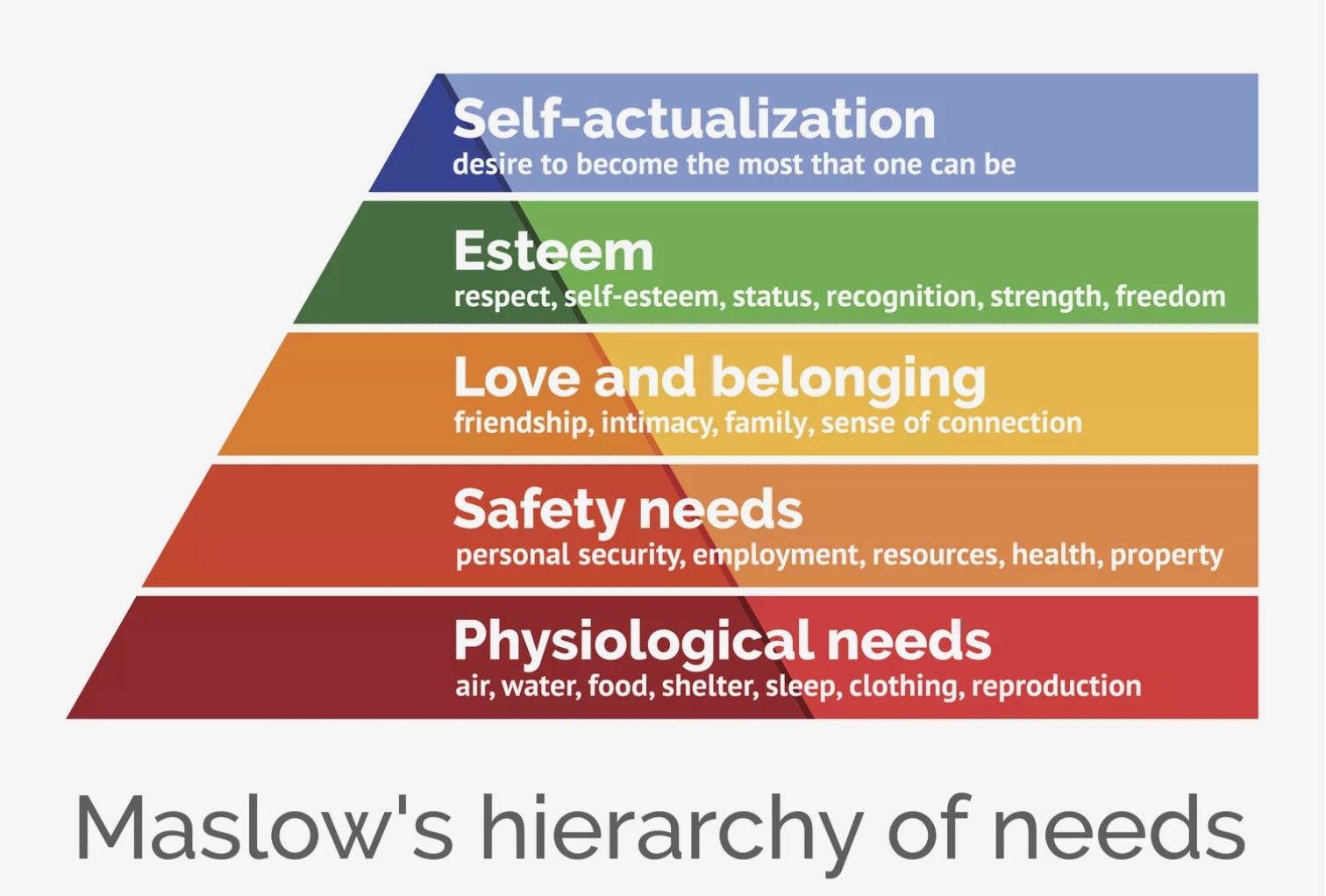One day, I saw a post on LinkedIn from James Clear; he mentioned that “There are at least four types of wealth:
- Financial wealth (money);
- Social wealth (status);
- Time wealth (freedom)
- Physical wealth (health)
This post got hundreds of comments and reposts. I saw people added other dimensions:
- Family wealth (love);
- Spiritual wealth (hope);
- Empathy wealth (connection)
I want to write a blog about this topic because there are so many insightful comments on this post and because this post stirred my thoughts.
Thought one: Real Life Stories
I was at a book club meeting via Zoom one day, and we were reading “The Crowd” during lunchtime.
“The Crowd” is a book analyzing crowds’ nature and role in political movements. It also reflects the social impact that is happening now and before. One perspective is that lots of people will follow the “crowd,” which could lead to less judgment because of the “crowd” influence.
According to the book, “ a group full of highly educated people, such as those who received a doctorate degree, their decision could reflect an average wisdom.”
During the book’s debrief meeting, a few people shared their own experiences of being misled and trapped in financial crimes; here are a few common examples:
- People promised to manage their wealth better by promising an over-an-average investment returns, starting from 20% + returns year-over-year;
- People told them they could earn quick money using innovative methods that were not discovered before by paying a high club fee to discover those methods;
- People said they could improve their loved ones’ sickness magically. People could lose millions of dollars in hopes of curing their loved ones’ cancer;
People fall into them because of their human nature: who does not want to earn more money and fight against their lives against death?
Thought two: People’s Needs
If we recall Maslow’s hierarchy of needs, much of the wealth pursued could be under different needs.
The bottom two levels are physiological needs and safety needs which, together, make up basic needs. Next are social and esteem needs—also referred to as psychological needs. Self-actualization needs are at the top level of Maslow’s pyramid.
It shows that we can wonder about different needs throughout our lives, regardless of our social status and life stages. People may sometimes chase their basic needs from time to time.
For example, when I watched the popular show on Netflix, “Love is Blind,” the format usually is: 15 single men and 15 single women, all from the same metropolitan area, hoping to find love. They all expressed the hope of finding a life partner and forming a family.
After marriage, people want to have children. Couples choose to have children but cannot successfully carry one in their effort to have their descendants for years or even decades.
Safety could be one of the most essential needs in our everyday lives. People are looking for “secure employment,” although it does not exist in many places. Look at the websites or tags that are built for “layoffs.” Families could suffer from a job layoff and lose security overnight.
I brought this up as I realized that Maslow’s hierarchy of Needs is intertwined with human beings’ pursuit of wealth, different wealth that I am going to expand below.
Thought three: What is” wealth” in the dictionary?
I am not going to elaborate on Maslow’s hierarchy of needs here, but more on the initial thoughts for measuring our “wealth.” Theoretically, the first “wealth” jumping into our minds could be “financial wealth,” which is a typical wealth definition, according to Wikipedia.
“Wealth is the abundance of valuable financial assets or physical possessions which can be converted into a form that can be used for transactions.”
Similar definitions of Oxford Dictory about “wealth”:
“ a large amount of money, property, etc. that a person or country owns.”
However, there’s no definition to measure “wealth” in our real world. There was once a time when people liked to use the term “millionaire,” and the first officially announced “millionaire” was almost 200 years ago. Sarah Cox Todd (died in 1842) was the first multi-millionaire businessman in the United States.
Does “millionaire” now mean they have “wealth”? Maybe not anymore. Real estate wealth has devalued the status of being a millionaire. In big cities, lots of assets are already worth more than 1 million or more. According to Wikipedia, 9.2% of millionaires are in the US. Singapore is 12.7%. Hong Kong is 15.3%, Switzerland is 15.5%, and Australia is 11.2%.
But anyhow, “wealth” is now meant to exceed the average class. There are all kinds of definitions,
could be referred to as 1% or 2%, or referred to as own liquid assets such as 1milion (high net worth), 5 million or 10 million as “very high net worth), and 30 million above considered as “ultra-high net worth,” source “How much money it takes to be ‘rich’ in America for 2024.”
But no matter what the number, does money bring you everything? If you watched the Netflix series “Breaking Bad” ” in the last episodes, Walter’s fortune of 80 million dollars is split among 8 barrels of money. However, his wife and son left him, and his brother-in-law was killed; he did not have a family to go to, and he had no friends.
Of course, this is a very extreme example. There are lots of celebrities has depression. Lady Gaga shared openly she has depression, although her net worth is 9 figures, more than 300 million. Leslie Cheung, a famous and wealthy Chinese singer/songwriter, actor, and film director, committed suicide 20 years ago.
Thought Four: Other Wealth
Then, it brings the other “wealth,” such as “health” or “love.” If we are wealthy and have plenty of liquid assets but are poor in different signs of wealth (physical or mental health) or do not have loved ones, that means people are “poor” elsewhere.
- Health Wealth:
Health wealth relates to health—both physical and mental. Without good health, other forms of wealth can lose their significance. So maintaining health wealth is crucial otherwise, people who possess financial wealth would not be able to achieve their needs, which I mentioned earlier, one of Maslow’s basic Needs – “safety needs”, is to be healthy.
Just imagine what wealth is the most important to people who are accepted at “an ICU” or are suffering from severe sickness.
-
Social wealth (status):
As I mentioned above, in the Netflix series Breaking Bad, Walter earns lots of money, but he makes it illegal by selling drugs. His family left him, and he has no friends.
Although it is a fictional story, it could help us to think, do we choose to be wealthy but be isolated in society? Of course, the answer is obvious.
-
Time wealth (freedom)
The psychoanalyst Sigmund Freud once said, “Money is nothing more than a tool for achieving freedom and security.”
Time is the most important asset anyone could ever possess. Without it, we cannot appreciate the beauty of our lives. Time wealth is about having the freedom to pursue activities that bring joy and fulfillment. Whether traveling, hobbies, or spending quality time with loved ones, time wealth allows for a balanced and fulfilling life.
My friend hired a reasonable babysitter from time to time to look after her babies so she could spend some time with her husband to celebrate important days such as anniversaries, birthdays, or Valentine’s Day and share quality time with her loved ones.
We could use the money to buy timeshares from our lives, but no one could create more than 24 hours a day.
-
Family Wealth:
Love within families is a powerful form of wealth. Family is about unconditional support; it has the metaphor that family is the safest place for the ships to dock at the port.
A family is a place where the whole family can enrich each other’s lives and provide emotional security.
In the “Squid Games” TV Series, all players must defeat other team players to survive and continue the “game.”
A girl on her team gave another girl a survival opportunity because she said she had no family in the world. But her team member still has a brother.
What does “family” mean? It means love and hope. There’s love in the family and the hope to celebrate many moments together.
If a person does not have a family or does not have a supporting family, it just means the need to love and be loved could not exist.
-
Spiritual Wealth
This wealth involves finding purpose and hope in our lives. It includes inner peace, faith, personal values, and beliefs.
Do we have our emotions influenced by the external world, or do we have a garden full of flowers that we could stay in and enjoy the beauty of? Spiritual wealth is totally within our control.
It is the upper level of wealth out of all, and people have different ways to find their spiritual wealth. And we could grow our spiritual wealth by:
- Being self-awareness
- Cultivate gratitude and thankfulness so we can find roses and sunshine in our lives instead of seeing thorns and darkness.
- Commit to personal growth—I started to enjoy music better after learning piano. After I listened to the historical audio, I began to see new angles on lots of things in today’s world as history repeats; after I started to learn some Spanish, I became interested in learning more about Spanish culture.
- Give back – the purpose of giving back to society will also grow our spiritual wealth. The sense of feeling valuable to give back could grow our spiritual wealth.
Thought Five: Wrapping up
Maslow’s hierarchy of needs aligns with the pursuit of wealth. From meeting basic needs to striving for spiritual wealth and aiming for self-actualization, each level includes our perception of wealth and fulfillment.
After exploring wealth, it becomes clear that it extends far beyond monetary assets. Wealth takes a holistic approach; our lives nurture relationships, giving and receiving love, personal growth, and physical and mental well-being.
Through the exploration, I’ve come to appreciate the wealth in the balance and harmony of different dimensions. It’s not about accumulating material possessions alone but about living a purposeful and meaningful life enriched by love, connections, and personal fulfillment.
So, what is your own definition of wealth? And what wealth do you prioritize in your life?

 1,194 views
1,194 views 
Leave a Reply